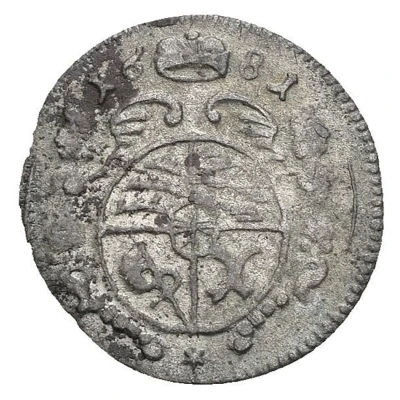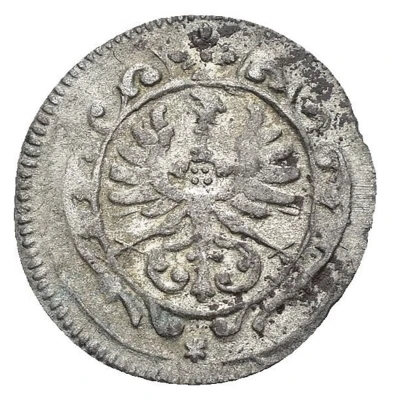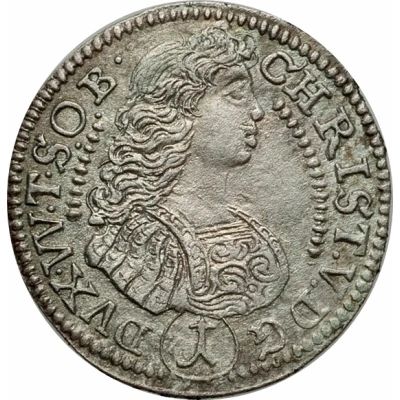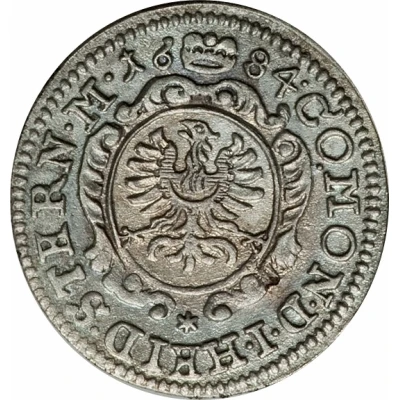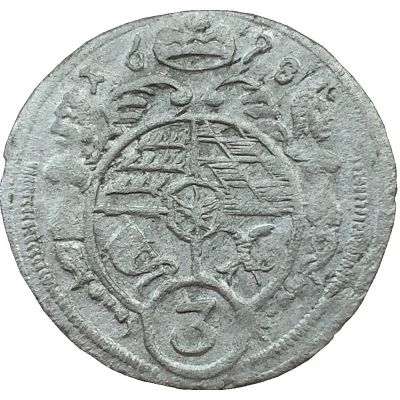
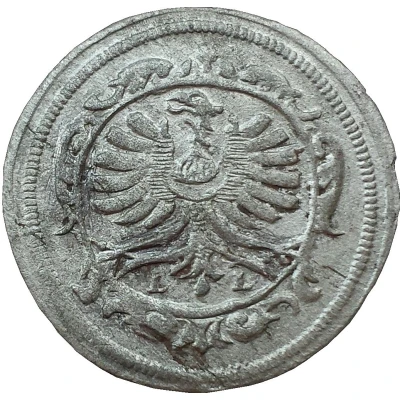

© kevin4430
1 Gröschl - Christian Ulrich
| Silver | 0.76 g | 16 mm |
| Issuer | Duchy of Württemberg-Oels (Silesia) |
|---|---|
| Duke | Christian Ulrich I (1669-1704) |
| Type | Standard circulation coin |
| Years | 1691-1704 |
| Value | 1 Gröschl = 3 Pfennig = 1⁄84 Thaler |
| Currency | Thaler |
| Composition | Silver |
| Weight | 0.76 g |
| Diameter | 16 mm |
| Shape | Round |
| Orientation | Medal alignment ↑↑ |
| Demonetized | Yes |
| Updated | 2024-10-04 |
| Numista | N#73095 |
|---|---|
| Rarity index | 69% |
Reverse
Silesian eagle in oval baroque frame, mintmaster's initials below, where present.
Lettering: L L
Comment
Ref. F&S#2399, 2401, 2403, 2408-09, 2411, 2414-16, 2420, 2424, 2428, 2431-32. Varieties exist.KM# is attributed to German states.
T = Johann Lustus Tolle, warden 1693-1696 (or 1698)
LL = Lukas Laurentius, warden in Öls 1694-1699
CVL = Christian von Loh, warden in Öls 1700-1717
Interesting fact
One interesting fact about the Standard circulation coin 1 Gröschl - Christian Ulrich 1691-1704 from Duchy of Württemberg-Oels (Silesia) made of Silver weighing 0.76 g is that it was minted during a time of great economic and political change in Europe. The coin was issued during the reign of Christian Ulrich, who was the Duke of Württemberg-Oels from 1691 to 1704. During this period, the Duchy of Württemberg-Oels was part of the Holy Roman Empire, which was a powerful and influential political entity in Europe at the time. The coin's design, which features an image of Christian Ulrich on one side and the coat of arms of Württemberg-Oels on the other, reflects the political and cultural influences of the time. Additionally, the fact that the coin was made of silver, which was a valuable and widely used metal at the time, highlights the economic significance of the coin and the importance of trade and commerce during this period.
